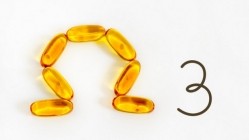Omega-3 and perinatal depression: Nutritional strategies can help combat “under effective” treatment

Academics from Taiwan and Singapore said omega-3 (n-3) polyunsaturated fatty acids (PUFAs) were promising antidepressant treatments for perinatal depression (PND) due to their safety, anti-inflammatory and neuroplastic effects.
However, they said although several observational studies have shown n-3 PUFA deficits in women with PND, clinical trials have showed inconsistent antidepressant effects of omega-3 PUFAs.
The meta-analysis included 12 eligible studies available as of December 2016.
Key findings included the fact there were significantly lower levels of total n-3 PUFAs and significantly increased n-6/n-3 ratios in PND patients.
In the subgroup analyses, there were significantly lower levels of eicosapentaenoic acid (EPA) and docosahexaenoic acid (DHA) in women with prenatal depression.
Meanwhile, the n-6/n-3 ratio was significantly increased in both prenatal and postnatal depression subgroups.
“Taken together, both meta-analyses highlight the importance of PUFAs in clinical depression. The brain is highly enriched with n-3 PUFAs and their derivatives, which regulate several biological processes, such as neurotransmission, neuroplasticity, and neuroinflammation, and thereby mood and cognitive function,” the researchers wrote in the journal Biological Psychiatry.
Profound imbalance
“The other primary finding is that PND is associated with a higher n-6/n-3 PUFA ratio, which is in line with the evidence suggesting an association between high dietary ratios of n-6 to n-3 PUFAs in PND. Anthropological and epidemiological studies suggest that human beings evolved on a diet with a ratio of n-6/n-3 PUFAs of about 1:1, and modern diets have a ratio of 10–20:1, indicating that modern diets are in a profound imbalance in PUFA composition.”
Although the beneficial effects of EPA and DHA in the treatment of depression have long been recognised, the importance of imbalance between total n-3 and total n-6 should be further examined as a possible role in the prediction of mental health in women during and after pregnancy, the paper noted.
The researchers concluded nutritional intervention should play a significant role in treatment.
“Our meta-analysis supports the important role of PUFAs in PND and further consolidates the phospholipid hypothesis of depression…nutritional medicine is a promising strategy for the crisis of undereffectiveness in depression treatment. Our findings provide a strong rationale to conduct clinical trials to test the therapeutic and prophylactic effects of n-3 PUFAs in PND.”
Source: Biological Psychiatry
http://doi.org/10.1016/j.biopsych.2017.02.1182
“Polyunsaturated Fatty Acids in Perinatal Depression: A Systematic Review and Meta-analysis”
Austhors: Pao-Yen Lin, et al














